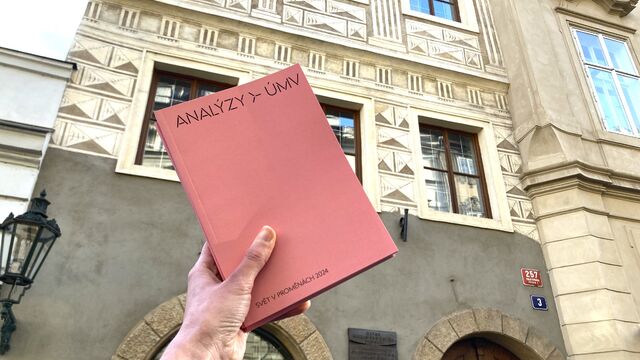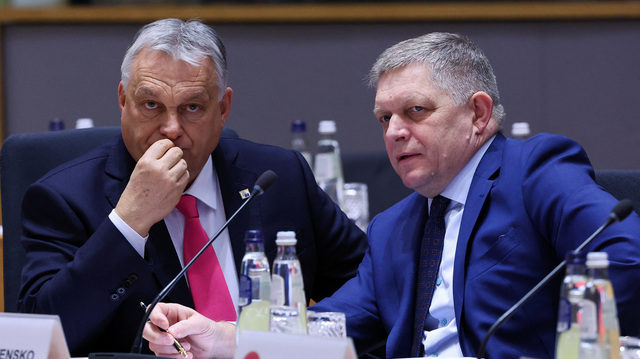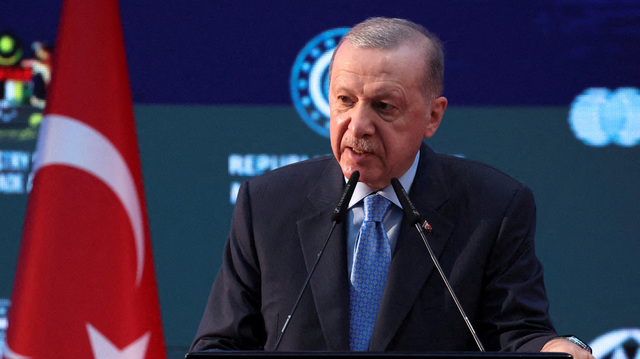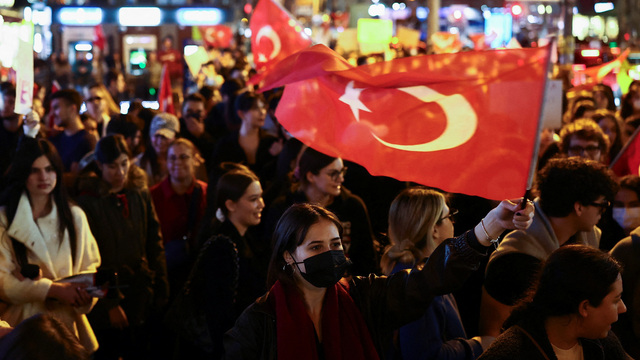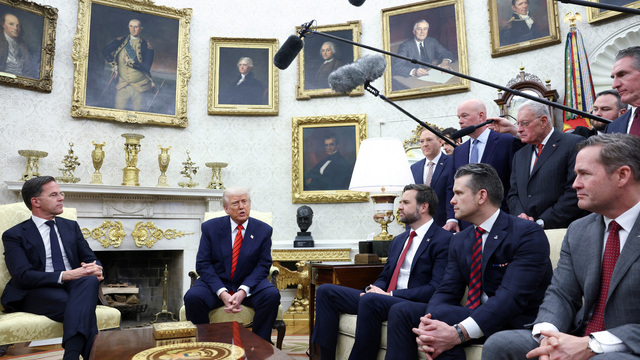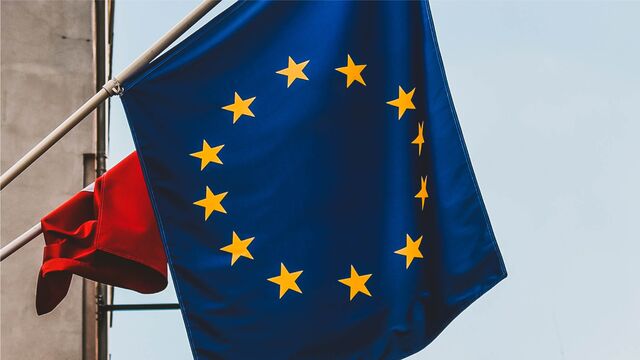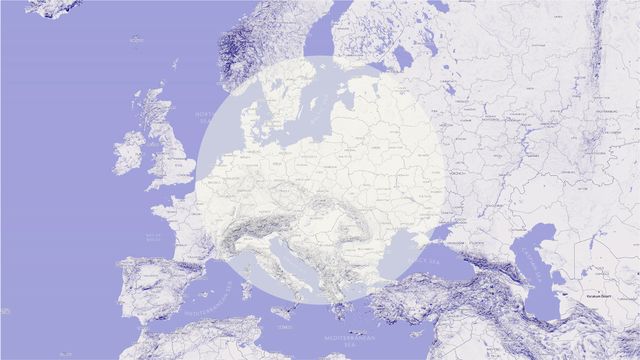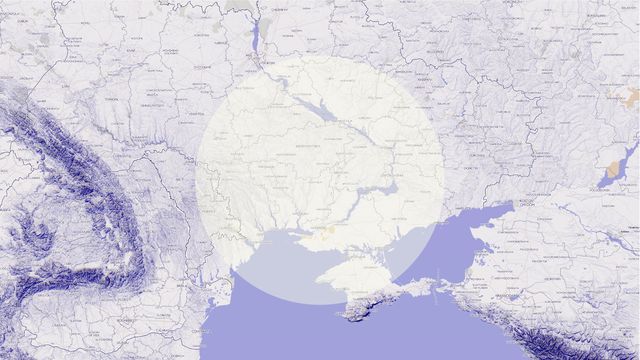The Ukraine EU Membership Bid
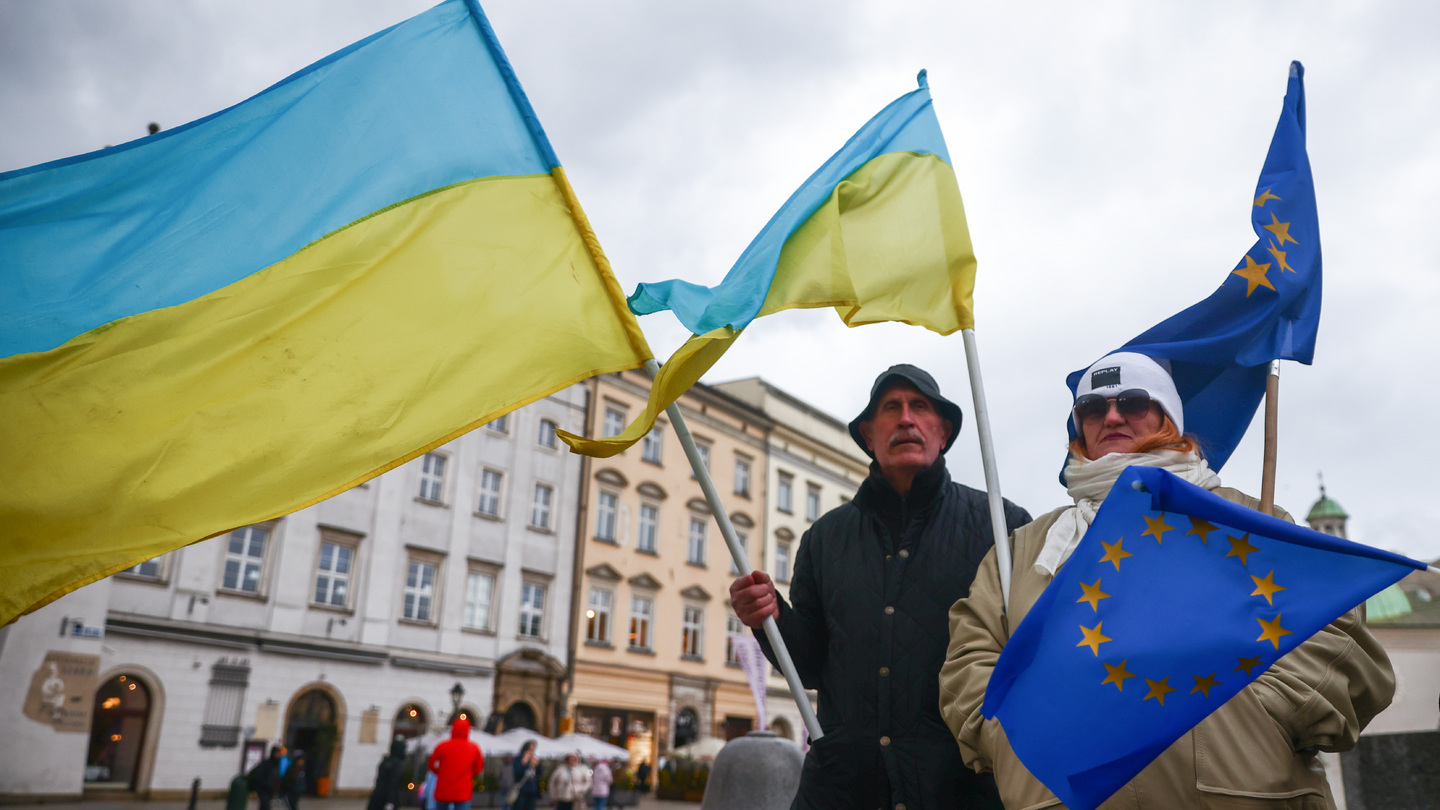
After the Russian invasion of Ukraine, the expansion of the EU became one of the tools to achieve a "geopolitical EU", for which, in addition to traditional economic interests, security will be crucial. Ukraine plays a key role in this approach. What could speed up accession negotiations?
Introduction
If Czechia wants to be sincere about supporting enlargement, then 2024 provides a unique opportunity. The idea of a geopolitical EU has opened the possibility of a second big ‘Eastern Enlargement’. However, the momentum is likely to be short-lived. Political elites in major EU member states are concerned that further enlargement will be too costly and undermine the EU as a community based on the rule of law, among other things. The previously dominating geopolitical idea within the EU of the countries of the Eastern Partnership, and primarily Ukraine, as a bridge and a ring of friends is, however, gone. In the context of the ongoing brutal Russian war on Ukraine, hardly anyone openly challenges the possibility of a future Ukraine EU accession. Previous rounds of enlargements illuminated the cruciality of stressing the EU’s historic commitment to Europe and the connectivity with the business community as tools for enabling enlargement. The same things are likely to be crucial this time. If correctly applied, a staged approach to enlargement can be a tool to make a lengthy process somewhat faster.
Problem: Analysis
The European Commission under the leadership of Ursula von der Leyen started talking about the importance of a new ‘Geopolitical Commission’, and the geopolitical EU. In this context the term ‘geopolitical’ is used by von der Leyen and others to describe an approach where the EU must combine its traditional focus on economic affairs with a stronger emphasis on security and so-called high politics. However, it was only after Russia’s war in Ukraine entered a new phase with Russia’s full-scale invasion in February 2022 that enlargement became an instrument of the geopolitical EU. During the European Council in December 2023, the decision was taken to open membership negotiations with Ukraine and Moldova.
In the context of Russia’s ongoing war, hardly anyone challenges the possibility of a democratic European state accessing the EU. However, remembering that the Western Balkan states received a membership perspective 20 years ago in Thessaloniki, there is a clear risk that enlargement will once again end up in an endless process that never reaches its goal. ‘Staged enlargement’ has recently become a buzzword and several proposals in relation to it are currently floating. Some of these can speed up enlargement but others risk creating new obstacles. As a long-term supporter of enlargement, Czechia needs to consider what strategy to choose.
Can a union claiming to be ‘European’ reject enlargement to a democratic European state? The term ‘rhetorical entrapment’ was coined to describe what happened in the early 1990s when EU leaders were quick to provide a conditional commitment to enlargement to the East, and its opponents found it difficult to challenge and thus had to oppose it indirectly. This logic is still valid, meaning that enlargement opponents will kill the process by focusing on various technical issues rather than on an outright rejection. A specific problem here is the multiple possibilities of member state vetoes. These could be reduced without the need for a treaty revision and the process could include a requirement for a unanimous decision only at the beginning and the end of the process.
Enlargement will take time. The last country to access the EU, Croatia, began its membership negotiations with the EU in 2005 and accessed it in 2013. A staged approach to enlargement could be a solution to the problem of speeding up the process by offering partial accession. A staged approach could postpone lengthy debates about the budget and redistribution mechanisms that risk paralyzing the process. While making it clear early on that the new member states will receive delayed and gradual access to funds and agricultural subsidies, the focus of the debate would alter away from the cost dimension. Even so, the expectations for the year 2030, as mentioned by Charles Michel, might be optimistic. The relatively quick decision to enlarge the EU to Central and Eastern Europe was facilitated by the economic opportunity the less developed markets in the area constituted for business interests in the old EU member states. The same potential can be identified this time and it is important to target that and engage business communities.
Another way the opponents could delay enlargement is by making it conditional on a treaty revision. The reforming of EU institutions is likely to be an even slower process than enlargement. Also, here a staged enlargement could allow for more flexibility and make the need for reform less urgent. Yet, that path would be democratically contestable and several important reforms, including the more extensive use of qualified majority voting, could be made without formal treaty revisions through the passerelle clauses.
The most difficult challenge of enlargement is likely to be linked to the rule of law. Unfortunately, the experience of previous enlargement rounds has made several member states and many experts sceptical. Staged enlargement is a convincing instrument for maintaining conditionality pressures for a longer period, and while rewarding candidate states for their successful completion of concrete steps, it maintains a possibility of punishing backsliding.
Implications for Czechia
It is hard to overstate how consequential the EU enlargement to Ukraine is for Czechia. The enlargement would have security, economic and political consequences and also change the decision making dynamic within the EU. If combined with NATO membership, Ukraine’s EU accession would anchor the country into Western structures and solve the country’s security dilemma. As with previous enlargement rounds, EU membership does not generate sufficient security guarantees. Even if the EU’s solidarity clause could be interpreted as providing some security guarantees, it is doubtful what this would mean in the context of Ukraine. Even if we assume that the EU enlargement would happen only after the war, and that Ukraine would win the war and Russia would withdraw its troops to the borders prior to 2014, the Russian security threat to Ukraine would remain (few would expect a quick change to a peaceful democratic regime in Russia). Under such conditions, it is difficult to see any alternative to NATO for providing security to Ukraine, with its EU membership happening only after this. However, given the slowness of the EU enlargement process it is not necessary to have clear answers to the security issue at the beginning of the process.
EU enlargement is often described as the organization’s best foreign policy tool to effect positive change in the neighbouring countries. As such it is in line with the long-term understanding of Czech priorities within the EU as favouring enlargement as a means to promote democracy and stability in the neighbourhood. A more practical consequence of it, however, is that the Czech influence would decrease due to the possibility of blocking minorities within Council negotiations. Ukraine is also likely to have different priorities compared to Czechia on many issues, particularly on agricultural policy and cohesion issues.
The economic costs of enlargement are often referred to as one of the biggest obstacles. In the case of Czechia, this includes the likely scenario of it becoming a net contributor rather than a net beneficiary within the EU’s common budget. The economic development level of Ukraine in combination with its massive agricultural sector would challenge both cohesion policy and the common agricultural policy. Yet, it is false to view enlargement in terms of a zero-sum game. The larger market created by enlargement has the potential to enhance economic growth and could be beneficial to Czech economic interests and companies as well. It would also improve the EU’s access to crucial raw materials. Still, even if we could add access to labour as one more economic benefit of enlargement, short-term economic gains cannot be the main reason for enlargement.
The strongest argument for enlargement is likely to be linked to a vision of Europe. An EU getting closer to the ideal of a unification of the entire continent would stress Czechia’s position in its centre, and this would increase the chances of stability and a rule-based order on a larger territory and be in line with respecting the choice of Ukrainians.
Foresight
The question, however, is not only about whether to enlarge but also about how to enlarge. Staged or differentiated enlargement is an important instrument to speed up the enlargement process. Yet, some of the proposals discussed risk complicating enlargement rather than facilitating it. The idea of making single market access a first step to enlargement is ill-considered. Today a market accession would be as difficult as gaining an EU membership but without all the benefits. All countries accessing the EU in 2004 or later received substantial derogations from core aspects of the single market. Moreover, some proposals include gradual access to EU decision-making, which is questionable from a democratic perspective. What would happen if a country ended up being without full voting rights for a longer period but was still bound by the common rules?
Yet, if carefully crafted, staged enlargement is a viable option. The model would need to be based on the gradual inclusion of the new member states into parts of the single market. It is already clear that the enlargement will include stronger mechanisms of sustained conditionality regarding the rule of law. The process will also be accompanied by a broader discussion on EU institutional reforms. EU enlargement will not happen without some changes, but if a speedy process is to be achieved, a big treaty revision should be avoided.
→ There is momentum for EU enlargement, and it is essential to agree on the basic steps of the enlargement process quickly. Staged enlargement should be considered, as should the possibility of reducing national veto points during the process.
→ The choice not to enlarge to Ukraine, or to delay the process indefinitely, would change the EU and reduce its influence in the world.
→ EU enlargement to Ukraine brings many changes to the EU and Czechia’s position within the Union that cannot be fully understood in terms of any cost-benefit calculation. In the end, it is about what vision of Europe the country promotes.
